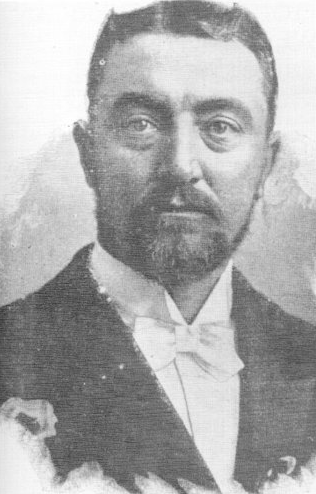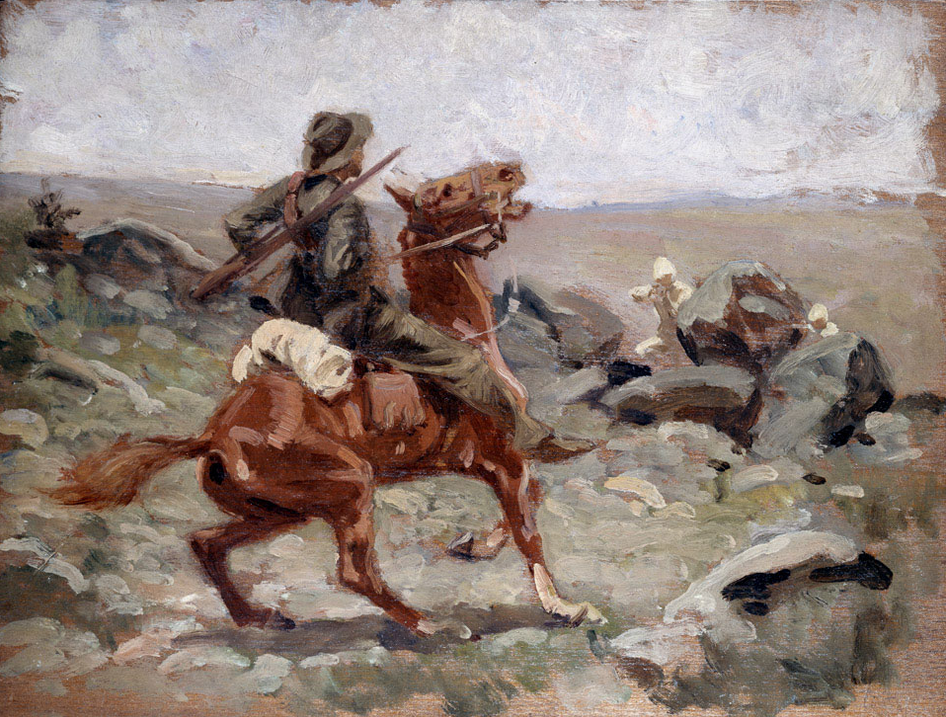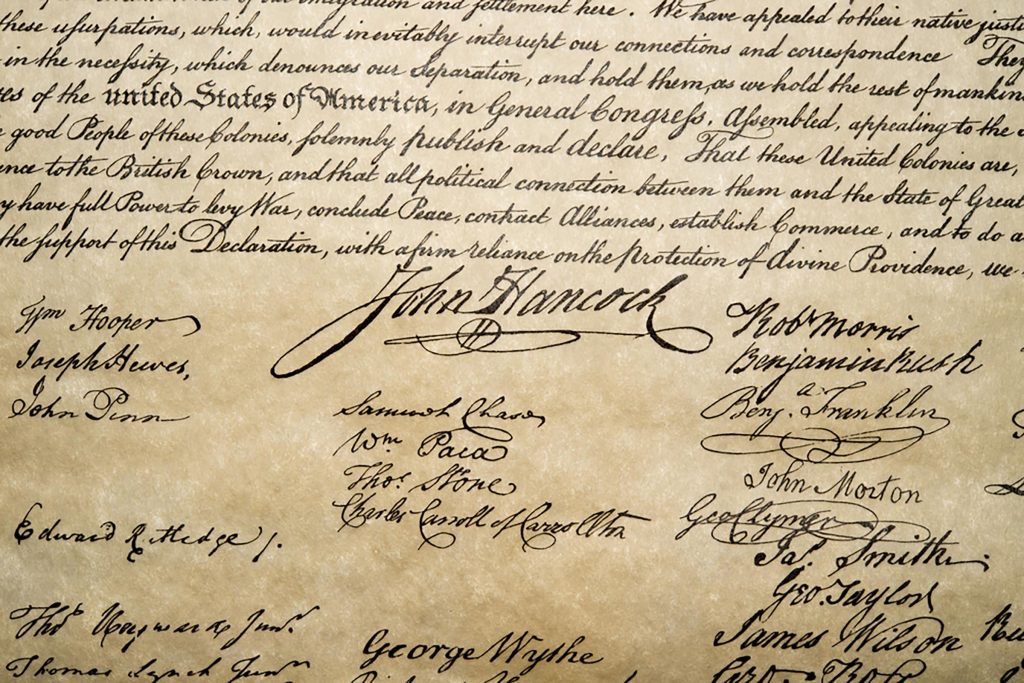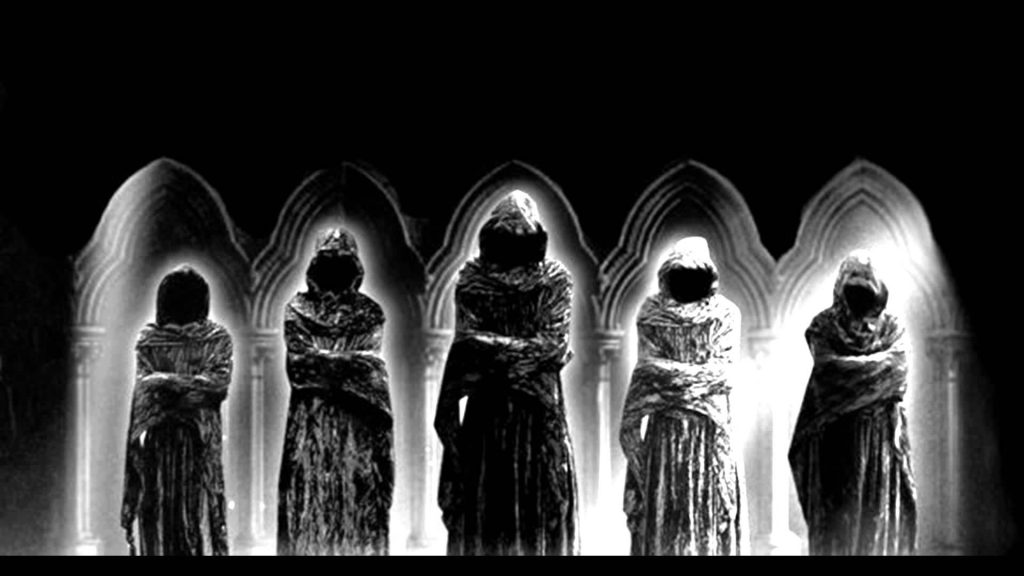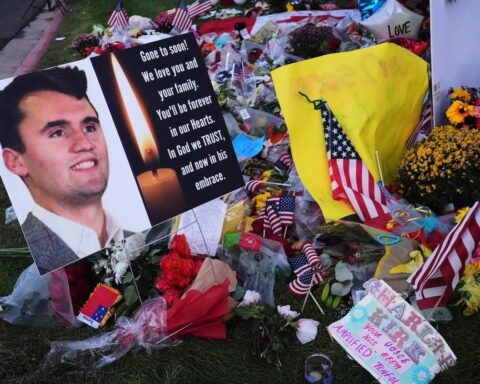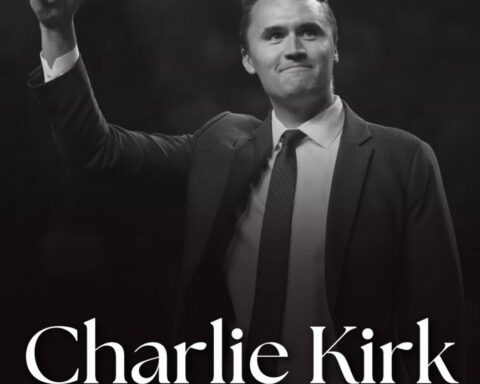Editor’s note: Here follow Chapters 46 through 52 of My Reminiscences of the Anglo-Boer War, by General Ben Viljoen (published 1902). All spelling in the original.
(Continued from Part 7)
CHAPTER XLVI
I AM AMBUSHED AND CAPTURED.
I may say that the barbed wire fences by which the blockhouses were encompassed, constituted very formidable obstacles to our attacks. Our men were comparatively few, and we could not afford to lose any of them in futile attempts to capture strongly garrisoned British forts. Moreover, there were many other ways of inflicting damage on the enemy that did not lay us open to so much danger.
Heavy and continuous rains had been experienced for some time, and the rivers and spruits were greatly swollen. The whole of the Lydenburg district, in which we were operating, was besides enveloped in a thick mist, and both these causes rendered reconnoitring very difficult and perilous, as we never knew how near the enemy’s patrols might be.
About the 15th of January, 1902, I obtained information that our Government were being chased all over the country, and had now encamped at Windhoek near Dullstroom, to the south of Lydenburg. At the same time I received an order from Acting-President Schalk Burger, stating that he wished to see me. This latter intelligence was very acceptable, for I was anxious to renew acquaintance with the President, and with a personal friend of mine, Mr. J. C. Krojk, who was attached to the Field Government. Therefore, on receiving this instruction, I set out from Pilgrim’s Rest accompanied by Adjutants Nel, Coetzee, Bester, and Potgieter, for the place where the Government were encamped. I little expected as I rode along that this would be my last and most fateful expedition.
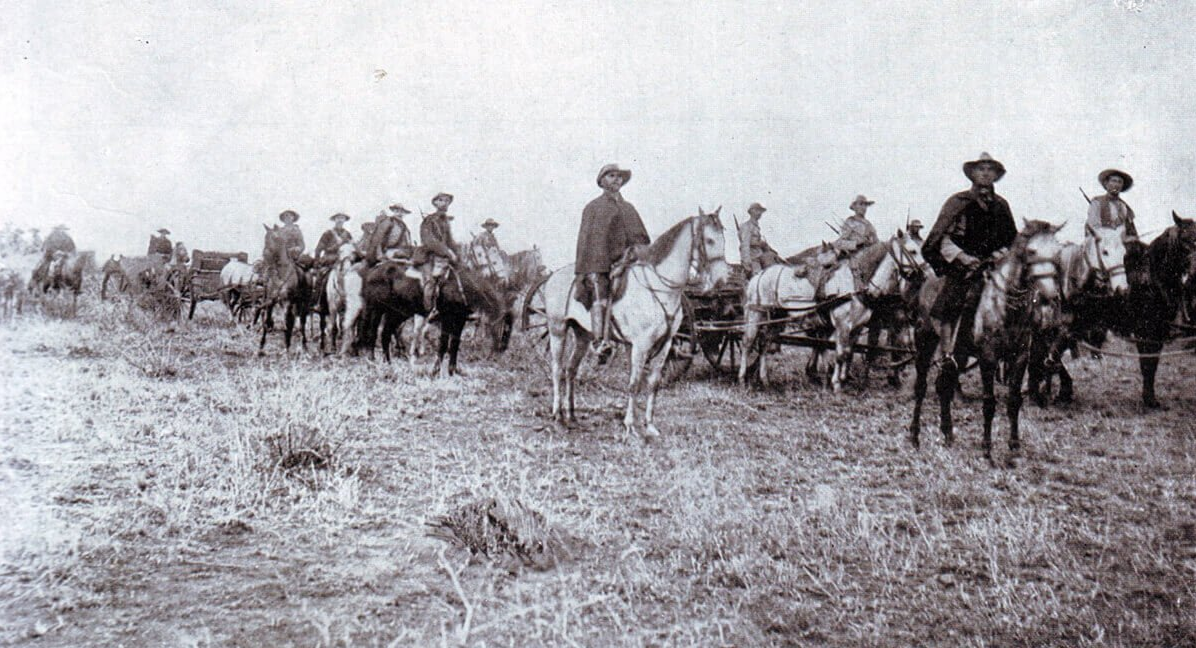
I calculated that I should be away eight days, and, wishing to be present at any active operations that might be conducted, I instructed my brother, whom I left in charge of my forces, to make no attack during my absence. After leaving Pilgrim’s Rest, I and my companions rode briskly forth along the path past Dornbock, Roodekrans and Kruger’s Post. We encamped at the latter place at night-fall. Next day we again set out, and having succeeded in passing the British forts and blockhouses to the north of Lydenburg, we came upon the Spekboom River. This river was so swollen by the recent rains that no fording was possible, and we were only able to cross by making our horses swim. At one o’clock we reached Koodekraus, and off-saddled there. This place is about 15 miles to the west of Lydenburg. At dawn the next day, after having reconnoitred the country in the neighbourhood, we proceeded cautiously in the direction of Steenkampsberg until we were meet by messengers, who told us precisely where our Government was to be found. That evening we found our locomotive Administration encamped at Mopochsburgen, to which place they had retreated before a hostile column, which was operating from Belfast.
The greetings that were exchanged were of the heartiest character, and we sat chatting round the camp fires far into the night. That we had much to talk about and many stories to relate of the vicissitudes of war needs no saying. I personally received the very lamentable tidings that my sister, her husband, and three of their children had died in the Concentration Camp at Pietersburg.
Two days after we arrived, the Government received a report from General Muller stating that two hostile columns were approaching. We had not long to wait. The enemy attacked us in the afternoon, but did not succeed in driving us from our position. We were not, however, in a position to sustain a long battle, owing to scarcity of ammunition. Many of our burghers had only five cartridges left and some had not even one. Therefore, that same night—I think it was the 21st of January although I had lost count of dates—the Government, whom I accompanied, departed and proceeded to the Kloof Oshoek, between Dullstroom and Lydenburg. The weather was very unpropitious, rain falling in torrents, and as may be understood, we were in a sad plight. We were protected by nothing except our mackintoshes, and greatly envied a member of the party who was the proud possessor of a small piece of canvas.
It had been decided that the Government should proceed on the 25th of January from Oshoek to Pilgrim’s Rest, but the information that the British were not pressing their pursuit, caused them to give up this project, for it was thought advisable to await the enemy’s next move. I should here mention that the further the Government were chased, the more difficult they found it to keep up communications with the Commandant-General and the Orange Free State Government. With the latter, however, despatches were being exchanged concerning very important matters which I consider as still improper to disclose. The Government having determined not to proceed, I decided to bid farewell, and to proceed with my attendants on the way to Pilgrim’s Rest.
Accordingly, on the 25th of January, we left the Government at Oshoek and rode along to Zwagerhoek, where we remained till sundown. We were now nearing the enemy’s country, and so, having carefully reconnoitred the ground, we set forth cautiously at dusk. Two young Boers, who were also on the road to Pilgrim’s Rest, had meanwhile joined us, and, including my kaffir servant, our party comprised eight persons. We soon passed the fateful spot where Commandant Schoenman had been captured in the early part of the War, and forded the Spekboom River.
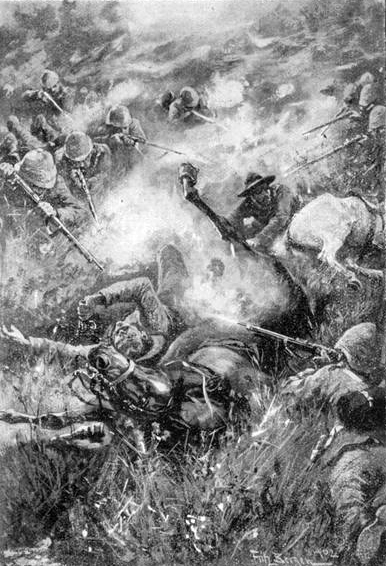
I am not superstitious, but I must confess that somehow or other I experienced considerable disquietude about this time, and felt cold shivers running down my back. We were just approaching Bloomplaats, which is about two and half miles to the west of Lydenburg, when we observed something moving. A deadly silence enveloped the country, and the brightly-shining moon gave a weird appearance to the moving objects in the distance which had attracted our attention. Our suspicions were aroused and we went in pursuit, but soon lost sight of the object of our quest. We discovered afterwards that our suspicions were well-founded, and that the moving objects were kaffir spies, who returned to the British lines and reported our approach. Having failed in this enterprise we returned to the road, I riding in advance with Adjutant Bester, the others following. Presently we approached a deep spruit, and having dismounted, we were cautiously leading our horses down the steep bank, when suddenly we found ourselves the centre of a perfect storm of bullets. We were completely taken by surprise, and almost before we realised what had happened, we found ourselves confronted by two rows of British soldiery, who shouted “Hands up,” and fired simultaneously. Bullets whistled in every direction. The first volley laid my horse low, and I found myself on the ground half stunned. When I recovered somewhat and lifted my head, I discovered myself surrounded, but the dust and the flash of firing prevented me from seeing much of what occurred. It seemed hopeless to attempt escape, and I cried excitedly that I was ready to surrender. So loud, however, was the noise of shouting that my cries were drowned. One soldier viciously pressed his gun against my breast as if about to shoot me, but thrusting the barrel away, I said in English that I saw no chance of escape, that I did not defend myself, and there was no reason therefore why he should kill me. While I was talking he again drove his rifle against me, and I, having grasped it firmly, a very animated argument took place, for he strongly resented my grasping his gun. Outstretching my hand I asked “Tommy” to help me up, and this he did. I afterwards learned that the name of my assailant was Patrick, and that he belonged to the Irish Rifles.
Four or five soldiers now took charge of me, and at my request consented to conduct me to an officer. Just as they were about to lead me away, however, they all fell flat upon their chests, and directed their fire at an object, which turned out later to be a bush. I very soon discovered that the “Tommies” were not very circumspect in their fire, and I sought safety by lying on the ground. Having discovered the innocent nature of their target, my guards conducted me before one of their officers, a young man named Walsh, who seemed to belong to the British Intelligence Department. This officer enquired, “Well, what is it?” I answered him in his own language, “My name is Viljoen, and not wishing to be plundered by your soldiers, I desire to place myself under the protection of an officer.” He was quite a minor officer this Mr. Walsh, but he said kindly, “All right, it is rather a lucky haul, sir; you look quite cool, are you hurt?” I replied that I was not hurt, though it was a miracle that I was still alive, for a bullet had struck my chest, and would have penetrated had my pocket-book not stopped it. The fact was, that my pocket-book had served the providential service of the proverbial bible or pack of cards. Bester was with me, and not seeing my other adjutants, I enquired what had become of them. Walsh did not reply at once, and one of the “Tommies” standing close by said, “Both killed, sor.” This information was a terrible blow to me.
Major Orr, of the Royal Irish Regiment, was in charge of the force that had captured me, and presently I was taken before him. He greeted me most courteously and said, “I believe we are old friends, General Viljoen; at least you captured some of my comrades in that regrettable affair at Belfast.” I was greatly touched by Major Orr’s kindness, and asked that I might see those of my men who had been killed. He immediately consented, and led me a few paces aside. My gaze was soon arrested by a heartrending spectacle. There on the ground lay the two lifeless forms of my brave and faithful adjutants, Jacobus Nel and L. Jordaan. As I bent over their prostrate bodies my eyes grew dim with the sad tears of my great bereavement. Major Orr stood uncovered by my side, touched by my deep emotion and paying homage to the brave dead. “These men were heroes,” I said to him with broken voice. “They followed me because they loved me, and they fearlessly risked their lives for me several times.” The good Major was full of sympathy, and made provision for the decent burial of my poor comrades at Lydenburg.
Bester and I were now conducted under an escort of 150 soldiers with fixed bayonets to the village, which was two and a half miles off. We reached Lydenburg very wet and gloomy, after having waded through a drift whose waters reached up to our armpits. Major Orr did his best to console us both with refreshment and kind words.
Our procession was presently joined by an officer of the British Intelligence Department, and this gentleman told me that he knew of the approach of my party, and that the chief object of the British in attacking us was to capture our itinerant Government, who they learned were to accompany us. He was very anxious to know where the Government was, and whether it was intended that they should pass that way. But I answered his queries by telling him that it was quite unworthy of a gentleman to put such questions to me, and to attempt to exploit my most unfortunate position.
Arriving at the village, I was treated with great courtesy, and was introduced by Major Orr to Colonel Guinness, the commanding officer. Colonel Guinness declared that he regarded it as an honour to have a man of my rank as a prisoner-of-war, and that we had fought so frequently that we were quite old friends. I thanked him for his compliment, expressing, however, my regret that we had renewed acquaintance under such unfortunate circumstances.
“That is the fortune of war,” said the Colonel. “You have nothing to be ashamed of, General.” We were treated very well by our captors, and were given accommodation in the apartments of my old friend Captain Milner, who now filled the office of Provost-Marshal. My meeting with this gentleman was very cordial, and we sat up till nearly daybreak relating our different adventures since we had last met at Roos Senekal, where the worthy Captain was made prisoner by me. He assured me that his regiment entertained the highest respect for me and my burghers, and that they appreciated the fact that we had fought fairly and gallantly and had well-treated our prisoners-of-war. Bester and I remained under Milner’s care throughout our stay at Lydenburg, and I shall always remember with gratitude the kindness extended me by the officers of the Royal Irish Regiment.
CHAPTER XLVII
SHIPPED TO ST. HELENA.
We were kept at Lydenburg until about the 30th of January, 1902, and during our stay there I obtained leave to write a letter to my burghers. In this I acquainted them and my brother with what had occurred, and exhorted them to keep up their hearts and persevere. Although kindly treated at Lydenberg, I cannot adequately describe the feeling of disappointment and sorrow which my enforced inaction caused me. I would have given anything to have been able to return to my commando, and felt that I would rather have been killed than have fallen into the enemy’s hands. Being thus rendered impotent I could but curse my fate.
Friendships which are formed on the veldt are strong indeed, and the men who have lived together through all the vicissitudes of war for twenty-eight months—through sunshine and rain, happiness and sorrow, prosperity and adversity—become attached one to another with lasting affections. My sufferings hit me very keenly. Besides the sadness which separation from my companions caused me, I acutely felt my position as, having been before in the habit of commanding and of being obeyed by others, I was now subject to the humiliation of having to obey the orders of British privates.
We prisoners were conveyed from Lydenburg to Machadodorp under the charge of Colonel Urenston, of the Argyll and Sutherland Highlanders, with an escort of 2,000 men. I was at a loss to know why so large a force should have been sent to guard me, but this seemingly exaggerated precaution was soon explained when I was told that Lord Kitchener had given special orders that great care was to be taken to prevent my commando from rescuing me. I must say that there was not much chance of that occurring. Colonel Urenston was a very courteous soldier, and treated me as well as could be expected.
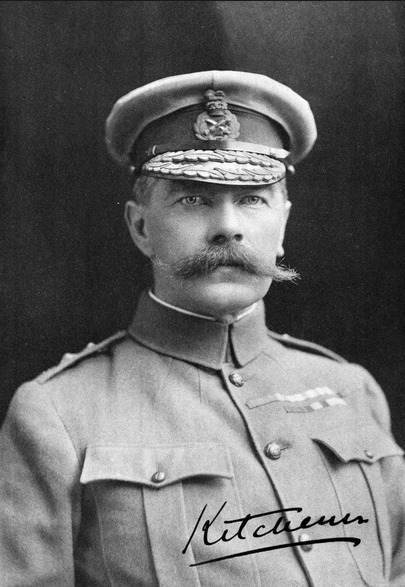
Reaching Machadodorp four days later, I was handed over at Dalmanutha Station to Captain Pearson, a staff officer, who subsequently conducted me and my fellow prisoners to Pretoria. Some days after my arrival there I was taken before Lord Kitchener, and was received very courteously by him at his office. My interview with this great General lasted about half an hour. The Commander-in-Chief of the British Army in South Africa impressed me as being a real soldier, a man possessed of a strong will not marred by arrogance.
I did not know what the British military authorities proposed to do with me, and felt quite indifferent as to the matter. At dawn on the third day after my arrival I was awakened by a soldier and informed that I was to be taken to the station. The train was in readiness when I arrived, and the officer in charge invited me to take a seat in his compartment. I was then told that we were to proceed to Durban, but no information was given me as to my ultimate destination.
On the train we prisoners were treated with great courtesy, but on reaching Durban a different experience awaited us. Here I was placed under the charge of Colonel Ellet, a very irascible person. This Colonel greeted me with the information that he was quite delighted that I had been captured. He repeated this gratuitous insult three times, and, my patience being exhausted, I asked him to be kind enough to tell me where he was instructed to convey me, and not to cause me unnecessary pain by his taunts. He apologised lamely and told me that I was to proceed on board ship. This very much surprised me, and I remarked that I had already been taken from home and hearth 500 miles. This ill-tempered creature then lent back arrogantly in his armchair, puffing at his cigar, and said: “Well, ah, you are banished, don’t you know. You are to be sent to St. Helena, or as we call it, ‘The Rock.’ You will shortly embark. It is a large ship you are going in; it is called—ah, let me see, oh, yes, the Britannica. I will proceed to the station and order your kit, and in the meantime you must sign this parole and report yourself forthwith at the docks.” I said in Dutch, which the Colonel did not understand, “Lord deliver me from this evil person.”
On arriving on board ship I found several other Boer prisoners-of-war, amongst them my old friend Erasmus, who masqueraded as a general in the early stages of the War. Never having been before upon the sea I was soon in the throes of mal de mer, and the prospect was certainly not encouraging. There was no help for it, however. Colonel Curtis, of the Royal Artillery, who was in charge of the troops on board, was a very polite and pleasant person, and very welcome after that extraordinary creature, Ellet. We were provided with good cabins and the food was excellent. Before leaving the Bay General Lyttelton visited me and showed himself very friendly. I soon found out that Mrs. Lyttelton was proceeding on the same boat to England. My company must have been rather unattractive, seeing that I was only well for one day during the whole voyage.
The steamer was ordered to call at Cape Town, and when we neared this port the guard kept over us was strengthened. An officer remained with us continually and counted us every two hours to make sure that none of us had escaped. One day two young Boers conspired to make a fool of the officer, and concealed themselves in the lavatory. Their absence was discovered the next time we were counted, and the officer in charge, in a great state of perturbation, demanded of us what had become of them. We took up the joke at once, and replied that they had gone on shore to be shaved and would return at 7 o’clock. This entirely took his breath away. But the absurdity of the situation so got the better of us that we burst out into ironical laughter, and finally set our custodian at ease by producing the two fugitives. We were punished for our little joke, however, by having our paroles withdrawn.
On the 19th of February the ship, with its sorrowful freight, steamed away from Cape Town. We prisoners, assembled on the upper deck, bade a very sorrowful farewell to the shores of our dear Fatherland. Long and sadly did we gaze upon the fast receding land from which we expected to be alienated for ever. Notwithstanding our depressing circumstances, however, we attempted pluckily to keep up our spirits, and with laughter and frivolity to cheer each other. Most of us had never been on a ship before, and only one of our number had ever voyaged away from South Africa. Ours was a very cheerless prospect, for, although we did not know our exact fate, banishment for life loomed over us. The ship’s officers were urbanity itself, and did everything in their power for our comfort. I shall always remember their kindness, but it would have required much more than human effort to have made our voyage enjoyable owing to the fact that we suffered so intensely from sea-sickness.
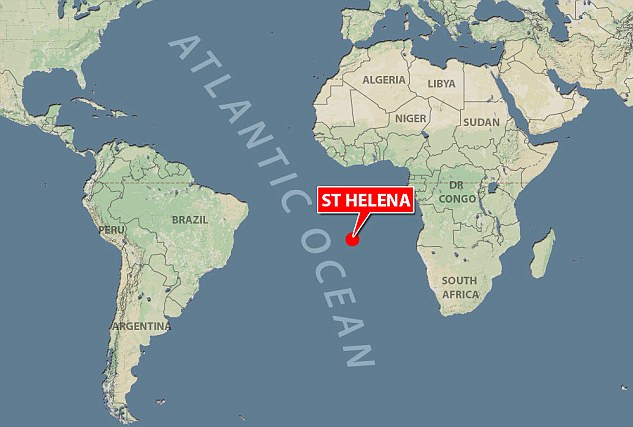
After a very cheerless and discomforting voyage, we dropped anchor on the 24th of February in St. Helena Harbour. “The Rock” rose out of the ocean, bare and rugged, and imprisonment upon it offered a gloomy prospect. No animal was visible, and foliage was wanting, I never saw a less attractive place than Jamestown, the port at which we landed. The houses seemed to be tumbling over one another in a “kloof.” We were all gloomily impressed, and somebody near me said, “This will be our living graves.” I answered, “No wonder that Napoleon broke his heart upon this God-forsaken rock.” I must confess that the feeling grew upon us that we were to be treated as ordinary criminals, since only murderers and dangerous people are banished to such places to be forgotten by mankind.
An English officer came to me and asked what I thought of the Island. My feelings got the better of me, and I replied—”It seems a suitable place for England’s felons, but it is very spiteful of England to deport here men whose only crime has been to fight for their country. It would have been much more merciful to have killed us at once than to make us drag out an existence in a manner so dreary.”
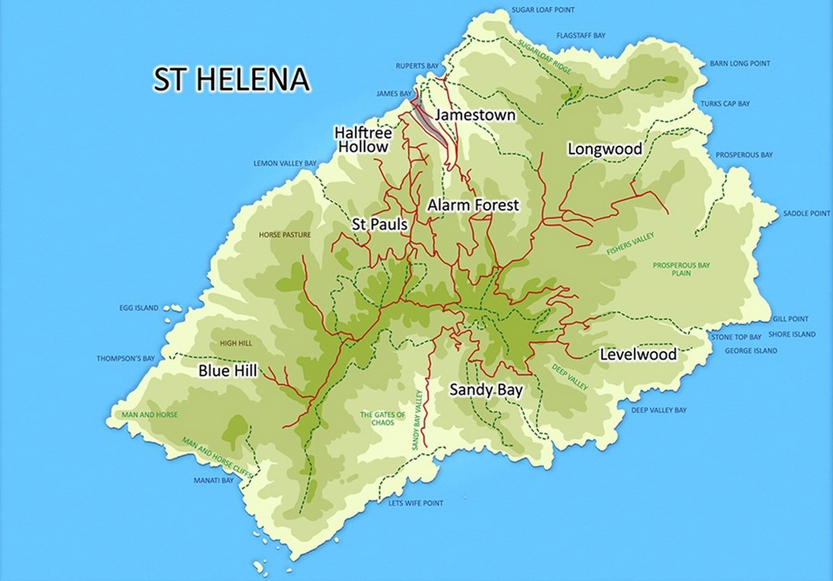
We were soon taken ashore by boats to Jamestown, and there learned to our great disgust that we were all to be put in quarantine for bubonic plague, and to be isolated at Lemon Valley, a valley in which I afterwards found that lemons were conspicuous by their absence. No greenery was to be seen in this desolate place. While our debarkation was proceeding one of the boats capsized, but, happily, everybody escaped with nothing worse than a ducking.
Quarantine regulations were enforced for six days at Lemon Valley. The accommodation was very inadequate, and our culinary utensils, though not primitive, were very bad, the food being such as might have been the portion of criminals.
Luckily for us a British Censor named Baron von Ahlenfeldt, and a doctor named Casey had accompanied us, and owing to their instrumentality we were allowed better food and treatment. At the end of our detention in the quarantine camp some of our number were removed to Broadbottom Camp, while the others were quartered at Deadwood Camp. Lieutenant Bathurst, who now assumed the position of our custodian, was a good prototype of friend Ellet at Durban, and he was at pains to treat us as felons rather than as prisoners-of-war.
CHAPTER XLVIII
LIFE IN BONAPARTE’S PRISON.
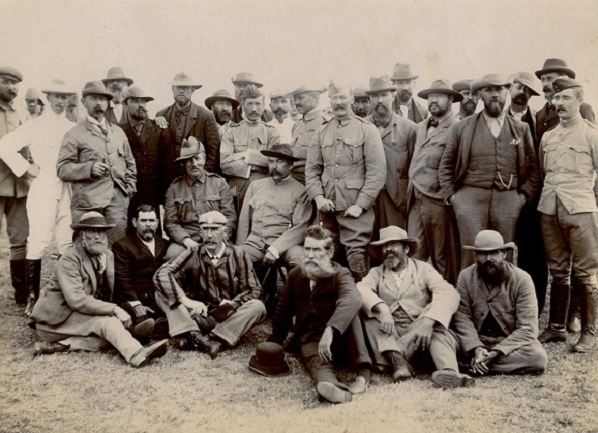
In order to reach Broadbottom Camp we had to ascend a remarkably rocky cliff named “Jacob’s Ladder,” the face of which was cut into a multitudinous series of steps. Having reached the summit we found a pleasing view of the Island opened before us. We now discovered that St. Helena was not the totally-barren rock we had at first been led to suppose. Patches of trees and greenery met our gaze, and in the midst of a carefully-cultivated plantation we espied a beautiful house, the habitation of the Governor of the Island. On our way we encountered a party of our fellow-prisoners, who, having been guilty of insubordination, were being taken to the dreary fort at High Knoll for punishment. Amongst these unfortunates we recognised several friends, but were not permitted to talk to them.
At sundown our destination was reached at Broadbottom Camp, which is situated under High Peak. Before us stretched a large space enclosed by four encirclements of barbed wire containing the tents and houses which formed the temporary homes of the prisoners-of-war. Sentries were posted at every hundred paces. There were 2,000 prisoners stationed here, and as they wandered aimlessly round they forcibly reminded me of the Israelites in exile.
On entering the camp I was received by the commandant, Colonel Wright, a typical Briton, who made no pleasant impression upon me. I shall not be querulous, although the Colonel very bluntly notified to me that he had no instructions but to treat me in the same manner as the ordinary prisoners, and added that as my name had appeared in the list of Boer officers who were sentenced to banishment, he doubted whether I was entitled even to the treatment accorded to the ordinary prisoners-of-war. However, a tent was erected for me, and I and my companions in adversity were given beds and culinary utensils. My bed consisted of two khaki blankets and a waterproof sheet, and my kitchen utensils comprised a pot, a washing basin, a pail, two enamelled plates, two large mugs, and a spoon. This is a complete inventory of the articles with which I was provided. I and the prisoners who had accompanied me had not tasted food throughout the whole day, and we would have gone supperless to bed had it not been that some compassionate brother prisoners ministered to our inner needs by providing us with some bully beef and bread, which, though but a frugal meal, was very welcome to us.
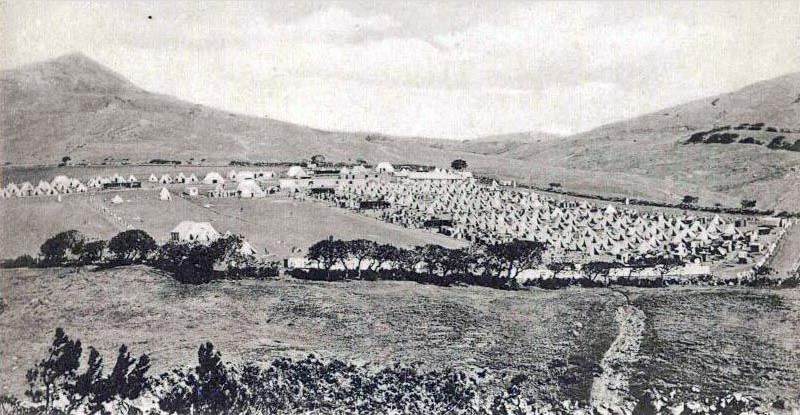
Camp life of the kind I now experienced was wearisome indeed. There was nothing to do, and we tried to while away the time by singing psalms and songs. At night the camp and its environments were rendered almost as bright as day by the glaring light of huge naphtha flares and by large search-lights which played round, making attempts at escape hopeless. It appeared to me that the search-lights were continually being turned in my direction, and I can assure you that I wished these glaring abominations at Hades. The buzzing and roaring noise given forth by the naphtha lamps, the monotonous chanting of the prisoners, the perpetual “All’s well” of the sentries, and the intermingling notes of the bugle calls suffused the air with their distracting sounds and made me feel as if my head were in a maëlstrom. The bugler was so amiable a person that he always made it a point of standing close to my tent when launching forth to the world his shrieking calls. Happily I became acclimatised to my distasteful surroundings, or I fear I should have soon graduated as a patient for a lunatic asylum.
I unhappily became at an early date acquainted with Colonel Price, commanding the troops on the Island. I shall never forget his demeanour towards me, for from the first his attitude was arrogant, cruel, and generally unbearable. He refused me parole, and declined to give me a pass beyond the confines of the camp. The unreasonableness of this hard treatment will be seen when it is remembered that not the slightest possibility of escape from the Island existed. The close confinement began to play havoc with my health, and I was in the fair way to the hospital, when a friendly doctor intervened and restored me to health once more. The rigid discipline and the stern regulations that were enforced can only be likened to what is experienced in monastic life. The “red-tape” curse prevailed everywhere.
Subsequently Colonel Price modified his tone towards me and allowed me parole. He was also gracious enough to permit me and some companions to occupy a little house 400 paces from the camp. This was a very agreeable change, for now we were no longer subjected to the harsh treatment of the “Tommies.” Our little residence rejoiced in the pleasantly-floral name of the “Myrtle Grove,” and was rented by us from an old coloured lady who vigorously insisted upon the punctual payment of the rent, and drew our special attention to the fact that plucking pears in the garden was strictly prohibited.
We had been told that the “Myrtle Grove” was haunted by ghosts, but the ghosts, if any there were, must have been pro-Boers, since they never disturbed us. But though we had no ghostly visitors we certainly had some of another kind. The house was perfectly infested by particularly large and bold rats. These thieving rodents, not satisfied with robbing our larder, had the audacity to sup off our fingers and ears while we were asleep. We waged vigorous war against the vermin, and after considerable difficulty managed to get the residence exclusively to ourselves. With the addition of some furniture, with which Colonel Wright was good enough to provide us, we made our house so comfortable that we felt ourselves almost in a position to invite the Governor to dinner.
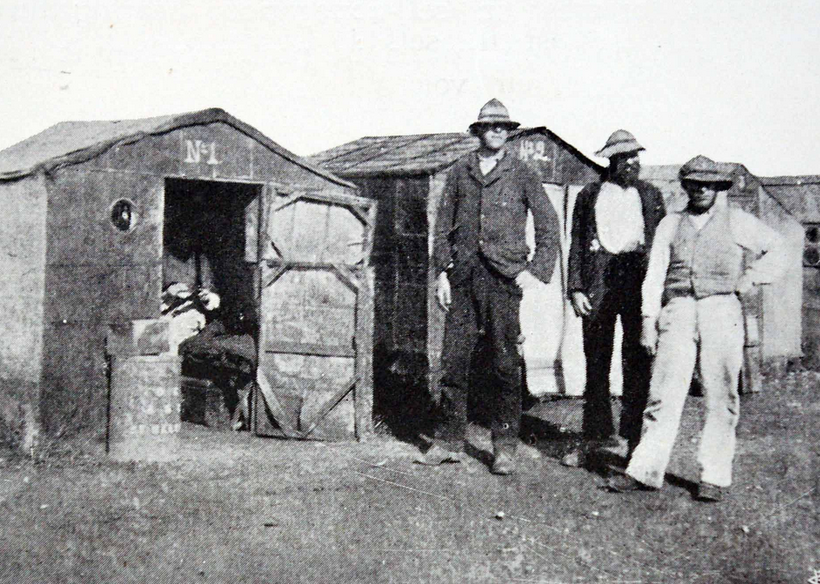
Our landlady, Mrs. Joshua, was the proud possessor of several donkeys, which were turned loose in our garden, and a large number of fowls. I may say that Mrs. Joshua was very ill-advised in keeping her fowls so near our house, for our cook, who had been trained in commando, was unable to resist the temptation of appropriating eggs. It did not, however, take our landlady long to find out what was happening, and we were informed that it was very much more Christianlike to purchase eggs. We took the hint, and adopted as far as we could Christianlike methods, though we found it extremely difficult to subscribe to all the principles of Christianity practised by the Islanders.
We whiled away the time by taking daily walks, and, by making excursions to the house at Longwood tenanted by Napoleon Bonaparte for six and a half years, and to the grave where his remains were interred for 19 years. I noticed that both places were being preserved and kept in order by the French Government. We used to sit by the little fountain, where the great French warrior so frequently sat, and read. We were permitted to drink a glass of water from this historical spring.
At Deadwood Camp 4,000 of my compatriots were confined. Some had been there for over two years, and I could not help admiring their discipline. It is not for me to criticise the entirely unnecessary restrictions to which these unfortunate prisoners were subjected, but I will point out that the severity practised towards helpless prisoners by armed soldiers created feelings of great bitterness. It was a stupid policy to pursue and perhaps fateful.
The military authorities were entirely unacquainted with the character and mannerisms of the Boers, and were advised in this connection by so-called “Cape” or “English” Afrikanders, who bear an ineradicable hatred to the Boers, and who always did their utmost to cause the prisoners to be treated with humiliation and contempt. Happily a number of English officers whom I met on the Island saw that we were not so black as we had been painted. Most of the officers who acted as our custodians here had come direct from England and knew nothing of South Africa. One of these gentlemen confessed to me that when he left London for St. Helena he had a sort of idea that he was to be placed in charge of a troop of wild barbarians, and that he had been quite agreeably disappointed. He declared, indeed, that he had found that the Afrikander in some respects was superior to men of his own nation.
It was undoubtedly a sad error for England to send officers to look after us, who, not having had any experience of South African warfare, were entirely ignorant of our idiosyncrasies and manners. The result of placing these inexperienced men as our guards was that one misunderstanding followed upon another, and that unnecessarily rigorous regulations were promulgated to preserve discipline and order. This treatment had the effect of nourishing within our bosoms hatred and bitterness.
Not being desirous of having to undergo incarceration with my insubordinate fellow-prisoners at High Knoll Fort, I carefully refrained from being unruly, and practised an orderly and amiable demeanour.
On one occasion I ventured to approach Colonel Price with a view to obtaining some amelioration in our treatment, and some remission of the rigorous regulations meted out to us. After keeping me waiting half an hour he came out of his office to meet me, but instead of extending a greeting he stared at me with ill-concealed amazement, probably expecting that I should jump up and salute him. I, however, merely rose and nodded, and enquired if I had the honour of addressing Colonel Price. He answered stiffly, “Yes, what do you want?” It was greatly disconcerting to be thus unceremoniously and discourteously greeted, and having explained my mission, I withdrew and took care to fight shy of this arrogant soldier in future.
I may say that our little party at “Myrtle Grove” was a few weeks later augmented by the arrival of Vaal Piet Uys and Landdrost T. Kelly.
We had in the meantime improved our acquaintance with Colonel Wright, who always treated us with cordiality and kindness, and allowed us frequently the privilege of spending pleasant afternoons at his house. Mrs. Wright was a charming hostess, and did everything in her power to lessen the feeling of humiliation with which we regarded our sad plight.
I should perhaps mention that St. Helena boasts of some elegant society. A few years before our confinement the Zulu chief, Dinizulu, was banished within the rocky bounds of this island prison. This son of Cain had during his detention here been invited to all the fashionable parties and dances, and had been honoured with an invitation to the Governor’s house. He was fêted at dinners and public festivities—but of course it must be remembered that Dinizulu was a kaffir and we were only Boers. Fancy, my Afrikander brothers, a self-respecting English young lady consenting to dance with this uncivilised kaffir! Imagine, they allowed him to dine at the same table, and to drive in the same carriage with them! I do not know how this information strikes my readers, but I must say that when the Governor of the Island, an elderly gentleman named Sterndale, with 35 years of the Indian Civil Service behind him, informed me that such had been the case, I was rendered speechless.
I would not have it supposed, however, that we prisoners had any special ambition to attend balls and dinners, for we were not in the mood for festivities, and even had we desired we could hardly with propriety have appeared at these elegant boards and gatherings dressed in our shabby apparel.
A number of the prisoners received permission from the authorities to pursue the various crafts and employments with which they were conversant, at the small daily wage of between sixpence and a shilling. This pay was a ridiculously small remuneration for the large amount of work which the men executed. A great diversity of trades were represented by us prisoners. One was a mason, another a farmer, a third an apothecary, while a fourth was a goldsmith, and so far did we go that one man was appointed caterer for the St. Helena Club.
Months had now passed since I had been first brought a captive to this island prison, and it approached the middle of May. Persistent though rather vague reports about Peace continually reached us, but owing to the strictness of the censors, who had an exaggerated idea of their duties, any news from outside came to our anxious ears in very small pieces, and gave us a very meagre idea of what was happening in South Africa and other places outside. That we were all praying earnestly for Peace needs no telling, especially if I may mention that some of my comrades had been incarcerated on the island for two years and eight months. I cannot adequately tell how wearisome their long exile was to them.
Just before I was liberated from confinement, our old antagonists, the 3rd Battalion of “Buffs,” under Colonel Brinckman, were detailed to the Island. This regiment had seen two years of active service in South Africa, and they were, therefore, soldiers who did not hold their enemies in contempt.
I do not feel at this time, in view of the present tension of affairs, able to pursue my account further; but if encouraged by a sympathetic public to supplement this effort by a more detailed description of my imprisonment at St. Helena, I may in the near future again seek their indulgence.
Meanwhile, I take what I hope will prove but a temporary leave of my readers, with the following explanatory details and critical comments on the general characteristics of the War.
CHAPTER XLIX
HOW WE BLEW UP AND CAPTURED TRAINS.
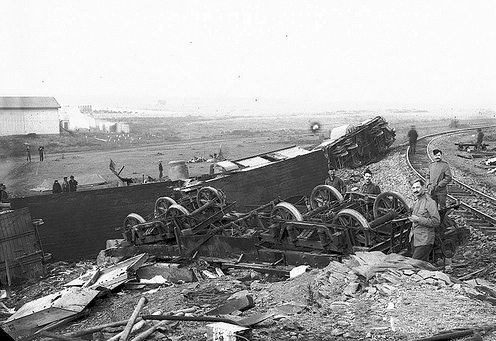
Looking at the matter superficially it seems a very barbarous thing to derail and destroy trains with dynamite, but this was the only course left open to us, since large military stores were being continually brought in by the British from the coast. We honestly regretted that, owing to the derailment and destruction of trains, drivers, stokers, and often innocent passengers were launched into eternity. War is at best a cruel and illogical way of settling disputes, and the measures which the belligerent parties are sometimes compelled to take are of such a character that sentimentality does not enter into any of the calculations of the contending parties.
It should not be necessary to assure my readers that we acted entirely within our rights in derailing and destroying trains. This was the only means we had of breaking the British lines of communication and of interrupting the conveyance of British troops and food.
Moreover, we were more than justified in any act of train-derailment that we committed, by the instructions of Lord Wolseley as expressed in his handbook. In that well-known publication this distinguished soldier actually prescribes the use of dynamite, and even suggests the manner in which it may be employed to the best advantage. But although this train-wrecking was in every degree justifiable, I can assure the reader that we regarded it as a very unpalatable duty. I remember that when Lord Kitchener complained to me about the destruction of a certain train, I sent him a reply to the following effect:—
“That the blowing up and destroying of trains was as distasteful to me as I hoped the burning of our houses was to his Excellency; and that when we derailed trains we entered upon the task with hearts quite as heavy as those which I presumed weighed down his troops when they deported our women and children from their homes to the Concentration Camps.”
I shall now describe how we went to work in the matter of capturing trains. That this is not so easy a task as appears to be supposed I shall endeavour to show. Perhaps the best way to exemplify our method of procedure would be to describe a particular instance which occurred in March, 1901, between Belfast and Wonderfontein on the Delagoa Bay Railway. The two stations are approximately 12 miles apart. At either station a garrison had been established, and these were provided with two or three cannons and two armoured trains, which latter were held in readiness to proceed to any place within their immediate sphere of action when anything irregular occurred on the line. They were used besides to carry reinforcements and stores when needed. The armoured train was indeed a very important factor in the British military tactics, and one we had to take fully into account. The railway between these two stations was also guarded by blockhouses. Every morning the British soldiers carefully inspected their particular section of the railway before trains were despatched in any direction. The peril of running trains at night was speedily recognised, and of those that attempted the journey very few indeed escaped capture. On the particular occasion when the incident I am about to relate took place, we were encamped at Steenkampsbergen, enjoying a little remission from the arduous work in which we had been engaged. But we were not idle, and a field-cornetcy of approximately a hundred men was detailed to attempt the capture of a train. I personally reconnoitred the line, and sent a field-cornet with instructions to lay a mine at the most favourable spot for the distasteful operation we were about to perform.
Our modus operandi was to take a Martini-Henri rifle and saw off four inches before and behind the magazine, and then to so file the trigger guard that the trigger was left exposed. Two of the most intelligent burghers were despatched over night with this mutilated rifle and a packet of dynamite to the spot chosen for the mine, while two other burghers kept guard.
Special precautions were taken to prevent footmarks being traced by the British patrols, the burghers walking for a considerable distance on the rails. The mine was prepared by carefully removing the stones from underneath the rails and as cautiously replacing them to again fill up the hole after the instruments of destruction had been adjusted. The trigger was placed in contact with the dynamite, and just enough above ground to be affected by the weight of the locomotive, but so little exposed as to be passed unnoticed. All surplus stones were carried off in a bag and great care was taken to conceal all traces of the mine. Gingerly and cautiously and without leaving any trace of their visit, the burghers now returned to their field-cornet and reported that all was in order. The field-cornetcy took up its position behind a small hill about a mile from the railway, and the men concealed themselves and their horses so ingeniously that their presence was not even suspected by the occupants of the blockhouse close by. According to our information the first train that was to pass next morning was the mail train carrying the European mails, and the prospect of capturing some newspapers and thus obtaining news of the outside world, from which we had been isolated for several months, filled us with pleasant expectation. I especially instructed the field-cornet to obtain newspapers, and to capture as much food and clothing as possible. It being the custom of the British garrisons to send scouts along the railway each day to examine the line, the next morning the track was as usual microscopically inspected, but the scouts failed to discover the trap which we had laid.
Two outpost burghers lay at the top of the hill in the grass, and from their coign of vantage they had a clear view of the railway line.
Ten o’clock in the morning arriving without a train appearing, my men began to grumble. In the excitement of this adventure they had omitted to prepare any food, and they were not now allowed to make fires, because the smoke evolved in culinary operations would have been immediately noticed by the enemy’s outpost. We had therefore to remain hungry, or our well-laid plans would have been frustrated. Time passed on, and at 2 o’clock in the afternoon there were still no traces of the expected train. Our horses were saddled up and had been without food since the previous afternoon, and the poor animals also began to show their displeasure by whinnying and stamping their hoofs on the ground. The enemy’s scouts had already inspected the line three or four times either by going over it on foot or by using a trolley.
The afternoon was well advanced, and fears were growing in our minds that the mine had been discovered. I should say that it was Sunday afternoon, and that the mine had been laid on Saturday night. This train-wrecking scheme of ours was contrary to the practices of our nation, who regard all such acts on Sunday as a desecration of the Sabbath, but here I will again apply an English precept, “The better the day the better the deed.”
About four o’clock my outposts notified to me the approach of smoke, and shortly afterwards we beheld a train coming along. Every man of us mounted his horse, and we sat calmly in the saddle to observe the execution of our plan. We held our breaths. Perhaps the British had detected the mine and removed it, with the result that all our travail would be in vain; or they might possibly have sent a large force of soldiers with cannon on the train to give us a “good hiding” to boot. We watched breathlessly the progress of the train as it rapidly approached the fatal spot, and our hearts thumped wildly as we waited to see the success or failure of our enterprise. We had not long to wait, for with a tremendous shock the mine exploded, overturning the engine, and bringing the train to a standstill.
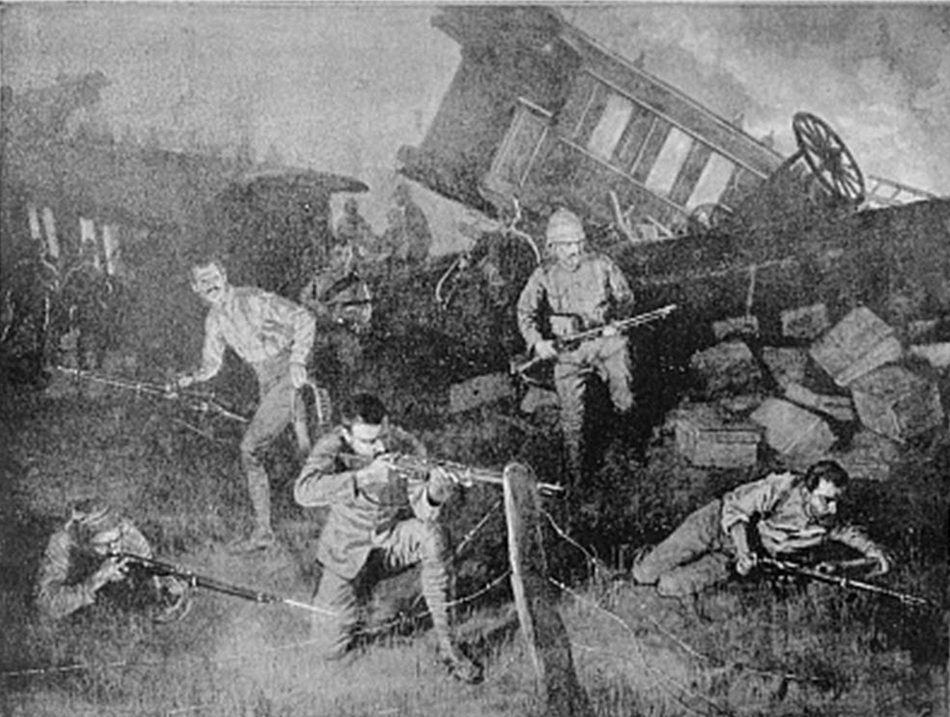
We now proceeded to storm the train, but I saw the danger of advancing in a mass and shouted to my men to go carefully and spread out. When we were about 500 feet from the train the British fired a volley at us, but in so doing they merely displayed by their firing that there were not many riflemen on the train, and that those that there were shot badly and at random. Thus shown the weakness of the enemy, we stormed with renewed vigour, and on arriving at about a hundred yards distance we dismounted. The defenders did not face our fire long before displaying the white flag. I stopped fire at once and the train was ours.
It was Lieutenant Crossby, of the Remount Department, who waved the white flag, and he now surrendered with about 20 “Tommies.”
Among the occupants of the train was an old major, and on his saying that he was very sick, and was on his way to the hospital, we immediately apologised for having disturbed him and for the delay which our little operation had caused him. There were eight sacks of European mail in the train and these we seized. We liberated the “Tommies” after disarming them. The Lieutenant in charge was the sole person detained as a prisoner-of-war, and he was added to six other British officers who were vegetating under our charge. Only a part of the train could be destroyed by us, as one section was occupied by women and children who were being transported to the Concentration Camps.
On the following morning the field-cornet brought me the papers and said with a smile, “You see I have brought you what you required, General.” I was overjoyed to obtain tidings from the outside world. The letters were distributed about the laager, and there was abundance of reading matter. I felt rather sorry for the “Tommies” who were being thus mercilessly robbed of their letters, but I consoled myself with the thought that our plight was quite as bad as theirs, for we Boers had had no communication from any members of our families for twelve months, and we felt justified in making the “Tommies” share our misfortune. The Boers did not, however, get much satisfaction out of other men’s epistles, and even those who could read English gave up the operation after having perused one or two, and threw away the sackfuls of letters with disappointed faces.
The capture of this train was our second success. Shortly before we had seized a train near Pan Station and had obtained a splendid haul. This particular train was carrying Christmas presents for the British soldiers, and we found a miscellaneous assortment of cakes, puddings and other delicacies. It was very amusing that we should be celebrating Christmas with cakes and puddings which had been intended for our opponents.
A few weeks after we had captured the train carrying the European mails we made another attempt at train wrecking, this time at Wonderfontein Station. All, too, went well on this occasion until we charged, and the British opened fire upon us with cannon. We were not favoured this time by any sort of cover, but had to attack over open ground, exposing ourselves to the heavy fire of the guns and the fusillade of a hundred British riflemen. We had chanced this time upon an armoured train, and the trucks which bore the cannon had remained uninjured. The nut was rather too hard for us to crack, and failing to take the train by storm, we were compelled to retire, after having sustained the loss of three men, of whom one was my brave adjutant, Vivian Cogell. From what I have said I think my readers will agree that the capturing of a train is not always a “cake and ale” operation.
CHAPTER L
HOW WE FED AND CLOTHED COMMANDOS.
As early as March, 1901, we experienced the difficulty of adequately providing our commandos with the necessities of life. So far back as September, 1900, we had said good-bye at Hector’s Spruit to our commissariat, and thence, no organized supplies existing, it may very well be imagined that the task of feeding the Boers was one of the most serious, and I may say disquieting, questions with which we had to deal. We were cut off from the world, and there was no means of importing stores. Of course the men who had been previously engaged on commissariat duty were enlisted in the fighting ranks so soon as they became available. From this date we had to feed ourselves on quite a different system. Each commandant looked after his own men and appointed two or three Boers whose special duty it was to ride round for provisions. It must not be supposed that we commandeered stores without signing receipts, and the storekeeper who supplied us was provided with an acknowledgment, countersigned by field-cornet, commandant, and general. On producing this document to our Government the holder received probably one-third of the amount in cash and the balance in Government notes, better known as “blue-backs.” By this time a large portion of the Republic had been occupied by the British, all food-stuffs had been removed or destroyed, and most of the cattle had been captured. In consequence, everything in the shape of food became very scarce. Flour, coffee, sugar, &c., were now regarded as delicacies remembered from the far-away past. The salt supplies were especially low, and we feared that without salt we would not be able to live, or if we did manage to exist, that we might bring upon ourselves an epidemic of disease. Our fears in this respect were increased by the opinions expressed by our doctors, and we viewed our situation with considerable disquietude. Happily, as experience proved, our apprehensions were not in the least justified, for during the ten months that preceded my capture my burghers lived entirely without salt, and were at the time that I fell into the hands of the British as healthy as could be desired.
Existing as we did solely on mealies and meat, potatoes and other vegetables which we might chance upon were regarded as luxuries indeed. Though it may appear strange it is nevertheless a fact that we were always fortunate enough to obtain adequate supplies of mealies and meat. We ground our mealies in coffee mills if no other mills were available. Mealie pap is cooked in a simple fashion, and occasionally boiling hot pots of it have fallen into the hands of the British. The British soldiers were not much better off than we were, for they were limited to bully-beef and “clinkers,” though they frequently supplemented their larder by stores from Boer farms, such as fowls, pigs, &c., and had salt, sugar, and coffee in abundance. Their culinary utensils were not nearly so primitive as circumstances had reduced ours to.
Many Boers did nothing but roam round with their cattle, and I confess that on many occasions they excited my admiration by the “slim” manner in which they evaded capture. Boers of this description were dubbed “bush-lancers,” because they always sought the thickest bushes for sanctuary. These “bush-lancers” were of three kinds: There were some who sought by running away with their cattle to escape commando duty, others who hoped by retaining their cattle to obtain a large profit on them after the War was over, while others were so attached to their cattle that they would as lief have lost their own lives as have suffered their cattle to be taken. All three classes of “bush-lancers” contrived to supply us with adequate stores of food. Often, however, it was a difficult task to get the supplies out of them. When we asked them to sell us cattle we were frequently met by the reply that we had already taken their best cattle, that the British had taken some, and that the little they had left they could not do without. Of course we were not hindered in our purpose of obtaining food by such a reply, and we had sometimes to resort to force. We frequently gave these “bush-lancers” notice when danger threatened, but in most instances they were the first to discover danger, and gave us information as to the movements of the British.
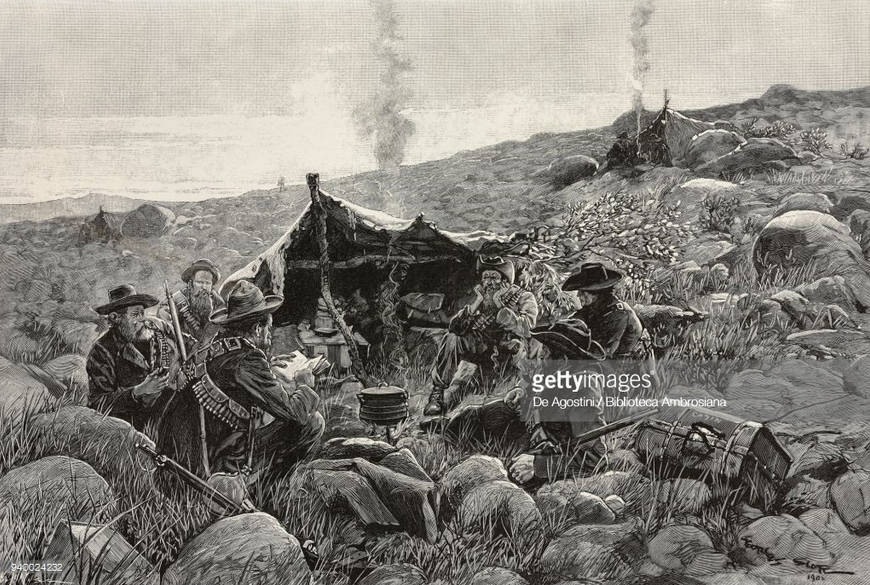
Everybody knows that it is a sore trial for the Boer to live without coffee, but this national beverage disappeared entirely from our menu, and its loss was only partly replaced by the “mealie coffee” which we set about preparing. The process was a very simple one. As soon as we off-saddled a hundred coffee mills were set to work. The mealie was roasted over a fire and afterwards treated in a similar manner to that by which the coffee bean is prepared. This “mealie coffee” made a very palatable drink, especially as we were frequently able to obtain milk to mix with it.
We generally roasted our meat on the coals, as we found that without salt meat was most palatable when treated in this way. This is explained by the fact that the ashes of the fire contain a certain saline quality. We obtained mealies in all sorts of extraordinary ways. Sometimes we harvested it ourselves, but more often we found quantities hidden in caves or kraals. Mealies were also purchased from the natives. Every general did all that was possible to sow in the district in which he was operating, for the soil is very fruitful. We very seldom lacked mealies, although the British frequently destroyed the crops we had been growing. There can be no doubt that when an Afrikander feels hungry he will find something to eat.
I have already mentioned that sometimes when the British swooped down upon us they carried away our culinary utensils, and a question may arise in the minds of my readers as to how we obtained others to replace them. Well, we were not particular in this connection. We found empty tea cans and empty bully-beef tins, and by manipulating barbed wire we speedily converted these crude materials into serviceable culinary implements. We preferred the tar cans because the beef tins often came to pieces after the solder with which they are fastened had been subjected to the heat of the fire. I remember that one day our parson gave as much as five shillings for an empty tar can.
Several British convoys fell into our hands, but the food we found on them consisted usually of bully-beef and “clinkers,” things which only dire necessity drove us Boers to eat. Sometimes to our great chagrin we discovered that all our fighting to capture a convoy was only rewarded by the sight of empty trucks or ones loaded with hay and fodder. If perchance we were fortunate enough to capture a camp or a fort we contented ourselves with removing such coffee and sugar as we could carry away on our pack mules.
The clothing question was very perplexing. Whenever we were able to obtain it we bought canvas and converted it into trousers. Sheep skins we tanned and employed either for the purpose of making clothes or for patching. The hides of cattle and of horses that had died of disease were also tanned and employed for the making of boots. I may point out that no horse was specially slaughtered for this purpose or for the purpose of food. It was only General Baden-Powell and General White who slaughtered their horses to make sausages. Our best clothing supply, however, came from the British Army. Forgive me for saying so; I do not intend to be sarcastic. When we captured a convoy or a fort we always obtained a supply of clothes. At the beginning of the War we Boers had a strong prejudice against any garment which even faintly resembled khaki, but afterwards we grew indifferent and accepted khaki quite as readily as any other material. We generally compelled our prisoners to exchange clothes with us, and often derived much amusement from the disgusted look of the sensitive Briton as he walked away in the clothes of a ragged Boer. Imagine the spectacle! A dandy English soldier, clean shaven, with a monocle adorning one eye, his head covered with an old war-worn slouch hat of broad brim, and his body with ragged jacket and trousers patched with sheep-skin or yarn.
I may say that none of this systematic plundering occurred in my presence. But such things were certainly done, and, after all, who can blame a ragged burgher for resorting to this means, however much to be deprecated, of clothing himself. Remember that the poor Boers were prepared to pay double the value of a suit of clothes, and were, so to speak, cut off from the world, while the British soldier had simply to go back to camp to obtain a new outfit. “Necessity knows no law.”
In concluding this chapter I must mention that the lack of matches was very sensibly felt. And when our stock of matches was exhausted we had to resort to the old-fashioned tinder-box and flint and steel. We found this expedient a very poor substitute for the lucifer match, but it was certainly better than nothing at all. Personally I experienced the greatest difficulty in getting fire from a flint and steel, and to do it generally took me quite twice as long as it took anybody else, and I bruised my hands considerably. This latter, however, is an experience to which every amateur is liable, and I was never much more than an amateur at anything.
CHAPTER LI
OUR FRIEND THE ENEMY.
In venturing on a judgment of the British soldier, from a military point of view, I may be told that only the man who has had a military training is competent to express an opinion upon the individual capacity of a soldier, be he Boer or Briton. That may be true, as long as people only go theoretically to work; but after my two and a half years of practical experience, my military friends may be gracious enough to allow me to express my simple opinion concerning this important factor, which is undoubtedly fundamental to the efficiency of any army. At the same time I promise to be as impartial in my judgment of the Boer as of the Briton as a fighter, or, at least, as impartial as can be expected from a fallible Boer.
As an officer in the Boer army I encountered the British soldier in many capacities and in many circumstances. The officer of the regular British troops was always prepared to notify that he had no high opinion of the officers of the irregular troops. At the same time the volunteer officer was equally ready to heartily reciprocate the compliment when it was passed upon him by the regular. To be honest, I must say that I specifically give preference to the regular officer, whom I regard as having more initiative, and as being more practical and less artificial than his colleague, the irregular Imperial officer. As regards courage I saw little to choose between them. I certainly can draw no great distinction, since I have never been in a position to fight on the same side as they.
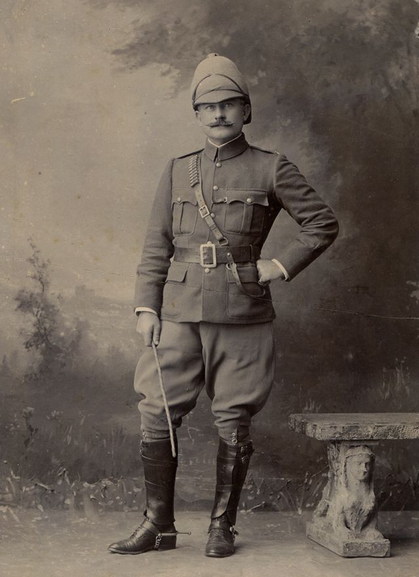
Generally speaking, I consider the British officer a very brave man, though I do think he sometimes is guilty of excess in that respect—that is to say, that he goes impractically to work, and, the young officer especially, is driven by ambition to do desperate and stupid things. To this foolhardiness may be largely attributed the heavy losses in officers suffered by the British Army in the War.
Since I fell into British hands I have found the officers to whom I had been opposed on the battlefield treat me with the utmost magnanimity. After having been in personal contact with a considerable number of officers of various regiments I must plainly say that the British officer is to be encountered in only two species: He is either a gentleman or—the other. The officer of the first species is prepared to be charitable to his antagonists, and generally assumes an attitude of dignity and humanity; whereas the latter possesses all the attributes of the idiot, and is not only detestable in the eyes of his antagonists, but is also despised by his own entourage.
There have been unfortunate British officers in this War, and there have been occasions when a disaster to the British has been immediately attributed to the acts or the tactics of the commanding officer. In this connection I will cite the regrettable instance of General Gatacre at Stormberg. I do not think this reverse is to be attributable to stupidity, or indiscretion, or cowardice.
There is a great deal of luck attached to any adventure in the field, and ill-luck had pursued General Gatacre persistently. But undoubtedly where bad luck pursues a commander on more than one occasion it is not only expedient but necessary to dismiss such an officer, because his troops lose confidence in him, and their spirit is undermined. It has occurred in this War that incapable officers with good men and much luck have performed wonders.
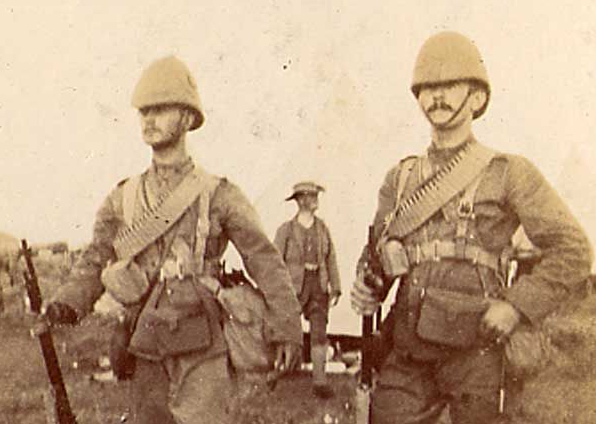
The British soldier, or “Tommy,” who draws a very poor daily pay, for which he has to perform a tremendous lot of work, is, if not the most capable fighter, the most willing in all circumstances to offer himself as a sacrifice at the altar of duty, or of what he considers his duty, to his country. But if “Tommy” by any accident be asked to deviate from the usual routine in which he has been trained, he is a thoroughly helpless creature. This helplessness, in my opinion, is caused by exaggerated discipline, and by the system under which “Tommy” is not allowed to think for himself or to take care of himself, and this individual helplessness has undoubtedly been one of the shortcomings of the British soldier during the War. As regards the fortitude of the ordinary British soldier, I must repeat what I have already said—that he is a courageous, willing and faithful warrior, and that it is to his fidelity and patriotism that the British Army may attribute its success. I believe this to be a truism which will defy even criticism.
There are, of course, exceptions to the courageous “Tommy.” If I were to draw any comparison between the nationalities, I would say that of the soldiers with whom I was brought into contact on the battlefield, the Irishmen and the Scotsmen were better fighting men than the others. In regard to British soldiers generally, I would remark that, if they could add good shooting and ability to judge distances to their courage, then they would be perhaps perfect soldiers, and certainly be doubly dangerous to their foes.
Taken as a whole “Tommy” is a very warm-hearted fellow, though as regards humanity some distinction must be drawn between the regular soldier and the enlisted volunteer, for the latter is less humane than the former. This was too clearly shown by his conduct in the transporting of women and children and in the plundering of prisoners-of-war. But nevertheless “Tommy,” generally speaking, whether regular or irregular, was sympathetic with regard to our wounded, and showed great kindness of heart to a maimed opponent.
I consider that the British infantry bore the brunt of the fighting of this War, especially in its earlier stages. Where the cavalryman failed to break through our lines the infantryman stepped in and paved the way for him. We found we could always better stand an attack from cavalry than from infantry, for this latter, advancing as it did in scattered formation, was much less visible to our marksmen. When advancing to the attack the British foot soldiers were wont to crawl along on their faces, seeking cover whenever that was available; thus advancing, and especially when they were supported by artillery, these men proved very difficult indeed to repulse. In my opinion a cavalryman has no chance against a good marksman when this latter occupies a good position and is able to await attack. The British cavalry horses are such stupendous creatures that given a good rifle and a keen eye it is difficult for one to miss them. They certainly make most excellent targets. It is my firm opinion that for usefulness the cavalryman cannot be compared to the mounted infantryman. Indeed, my experience during the last 14 months of my active participation in the War taught me that the British mounted infantry was a very hard nut to crack. Of course everything depended upon the quality of the man and the horse. A good rifleman and a horseman, especially if he were able to fire when mounted, was a very formidable foe. As for horses, I may say that I do not wonder that the great unwieldy horses for which the British cavalrymen have such a predilection cannot be compared to the Basuto ponies with which we went to work. The African pony has, in fact proved itself to be the only useful horse during the campaign. The British cavalryman might have used elephants with almost as much advantage as their colossal horses. Further, in my opinion, the cavalrymen might just as well be discontinued as a branch of an army, for there can be no doubt that the infantry, artillery, and mounted infantry will be the only really useful and, indeed, practicable soldiers of the future.
While I was writing the above a book was placed in my hand written by Count Sternberg, with an introduction from the pen of Lieut-Colonel Henderson. I doubt very much whether Colonel Henderson read the manuscript of the Count’s book before penning his introduction, for I cannot suppose that he holds such small-minded and fantastic ideas regarding South Africa as the Count expresses. In this memorable work some extraordinary tales are told of the galloping and trotting feats of the Basuto ponies. The confession that the Count makes that he did not care upon which side he fought so long as he fought is indeed extraordinary. That he ever fought at all the Boer officers who knew him strongly doubt, and none of them will wonder that the Count’s bitterest experience in South Africa was that on one occasion some naughty German ambulance people deprived him of a box of lager-beer. This and other amateurs have already overwhelmed the reading public with so much so-called criticism about this War, that I venture upon delicate ground in offering my opinion. I will confine myself to commenting upon what I saw and I know personally, for I know nothing about the topography of Europe and I am not acquainted either with the composition of the European armies or with their manner of fighting.
CHAPTER LII
THE FIGHTING BOER AND HIS OFFICER.
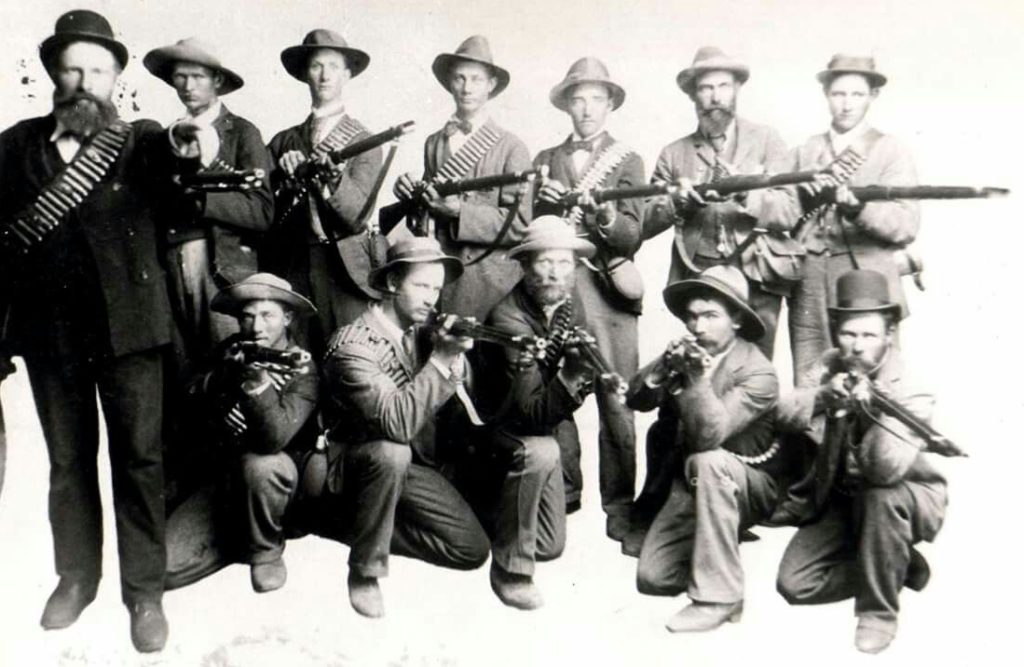
There is great difference between the relations of a Boer officer to his following and the relation of a European officer to his men, for while in the former case no social distinction between the two exists, in the latter the officers and men are drawn from two distinct branches of society. The Boers in their normal state are independent farmers differing only in wealth. One Boer might be the possessor of perhaps ten farms and be worth a quarter of a million, while another might be but a poor “bywoner” and not worth a hundred pence, yet the two men would occupy the same rank in time of war.
Immediately martial law is promulgated the entire Boer adult male population is amenable for military service. In the ranks of a commando one finds men of every profession, from the advocate and doctor to the blacksmith and plumber. From these ranks the officers are chosen, and a man who one day is but an ordinary soldier might be the next promoted to the rank of field-cornet or commandant, and might possibly in a few days attain the position of a General.
The officer and the men that follow him have in most cases been drawn from the same district, and they know one another personally. If, therefore, a Boer falls in battle, whatever be his rank, his loss is keenly felt by his comrades in arms, for they, having known him of old, lose a personal friend by his death.
The Boer officers can be divided into two classes — the brave and the cowardly. The brave officer fights whenever he gets the chance, whereas his chicken-hearted brother always waits for orders and makes elaborate plans to escape fighting. It is quite easy in the Boer Army to succeed in the course adopted by the latter class, and it not infrequently occurred that the Boers preferred this class of officer to his more reckless comrade, for they argued — “We like to serve under him because he will keep us out of danger.” And just as the officers could be divided so could the men.
In this campaign it was noticeable that during the last stages of the struggle the younger officers replaced the older ones. Many of these latter got tired of the War and surrendered to the British, others were removed from their commands as being too old-fashioned in their methods and incapable of adapting themselves to the altered circumstances. Moreover, we found that the younger officers were more industrious, more mischievous, and more reckless. Of course, when I speak of the young Boer officers I do not intend to convey the idea of children of seventeen to twenty years of age, such as I have sometimes encountered among the junior officers of the British Army.
The life training of the burghers in horsemanship and musketry stood them in good stead. I may say that a Boer even early in life is a good horseman and marksman. He does not shoot without purpose for he can generally estimate at a glance the distance at which he is shooting, and he has been taught economy in the use of ammunition. The burgher knows perfectly well how valuable to him is his horse, and he is thus constrained to use his knowledge in carefully tending it; moreover, considerable affection exists, in many instances, between the master and his beast.
Taken all round the Boer is a brave man, but his attitude on the battlefield is influenced very largely by the character of his officer. And being brave, the Boer is, in the main, sympathetic towards prisoners-of-war, and especially towards such as are wounded. Possessing bravery and humanity the Boer has besides what the British “Tommy Atkins” lacks, the power of initiative. The death of an officer does not throw the ranks of a Boer commando into chaos, for everybody knows how to proceed. It must not be supposed, however, that the death of an officer does not exercise a certain amount of demoralising influence. What I wish to impress is that the members of a commando can act independently of the officer and can exercise their own judgment.
As regards the fortitude of the Boers, I can best illustrate it by pointing to the fact that it frequently happened that having been repulsed with loss one day we attacked our conqueror with better success the next. We often assumed the aggressive when a favourable opportunity offered itself, and did not always wait to be shot at. Frequently we held out for hours notwithstanding severe punishment.
I think even the bitterest of our enemies will allow that the Boers who remained faithful to their country to the last were animated with noble principles. Were it not that so many of my compatriots lacked that which is so largely characteristic of the British soldier, the quality of patriotism and the intense desire to uphold the traditions of his nationality, I would ask what people in the world would have been able to conquer the Afrikander? I say this with great deliberation, and I do not believe that any impartial compatriot will attempt to deny the truth of the statement.
The question suggests itself how would the English have fared had they been placed in a plight similar to that to which we found ourselves reduced? Supposing that we Boers had taken London and other large towns, and had driven the English people before us and compelled them to hide in the mountains with nothing upon which to subsist but mealie pap and meat without salt, with only worn and rent clothes as a covering, their houses burnt, and their women and children placed in Concentration Camps in the hands of the enemy. How would the English have acted under such circumstances? Would they not have surrendered to the conqueror? However that may be, one thing is certain, that the patriotism of a nation is only to be learned when put to such a severe test as this.
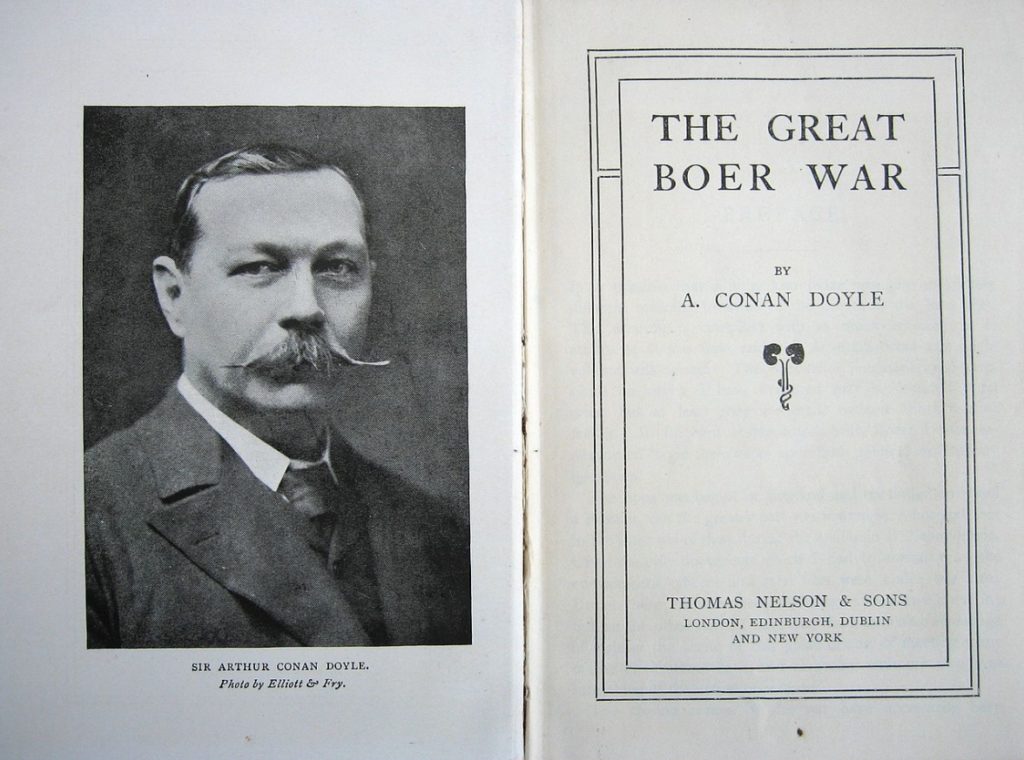
In his book, “The Great Boer War,” Dr. Conan Doyle has, on the whole, gained the admiration of the Afrikanders by his moderate language. But here and there, where he has been carried away by his English sympathies to use bitter and libellous language with respect to the Boers, that admiration has been changed into contempt. Dr. Conan Doyle attempts to defend the British Army by abusing the Boers. Abuse is not argument. To prove that Van der Merwe is a thief does not exonerate Brown from the crime of theft if he have been stealing.
The author describes the shooting of Lieutenant Neumeyer, for refusing to surrender and for attempting to escape from his captors as murder, and the shooting of kaffir spies it also glibly described as murder; whereas, the incident at Frederickstad, where a number of Boers were shot dead by the British because they continued firing after hoisting the white flag, is justified by him. Of course, the execution of Scheepers is also justified by the author. I object to such things appearing in a book, because they must tend to sow anew the seeds of dissension, hate and bitterness, and these have been planted sufficiently deep without being nurtured by Dr. Conan Doyle. Neither Boer nor Briton can speak impartially on this question, and both would be better employed in attempting to find out the virtues rather than the vices in one another’s characters.
Whoever in the future governs South Africa, the two races must live together, and when the day of Peace arrives and the sword is sheathed, let us hold out our hands to each other like men, forgetting the past and remembering the motto—
“Both Nations have Done their Duty.”
